A few Essential tips to make a breakthrough in Indian Civil Services Exams
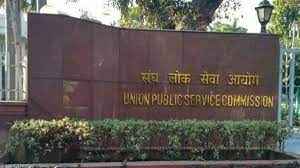
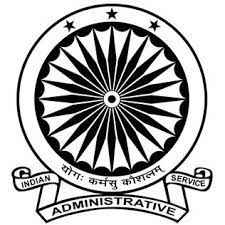
Indian Civil services are India’s most prestigious and sought-after profession, or Sarkari Naukri. Once you qualify in the written tests and interviews, you become a member of the administrative arm of the Indian government. As a civil service officer, you manage and administrate various public services, including Indian Administrative Services, Indian Foreign Services, Indian Police Services, Indian Revenue Services, Indian Railways Management Services (for Indian Railway Jobs), and others.
The Union Public Service Commission (UPSC) recruits civil service officers through a well-laid selection process. The selection process involves three stages: the preliminary examination, the main examination, and the interview. Once selected, you undergo training in respective academies and pass out as civil services officers; and become responsible for implementing government policies, managing government programs and projects, and providing administrative support to government functioning.
Tips about How to Go about it – Understand the Stages and Pattern
Qualifying for the Indian Civil Services examination is challenging and requires dedication, hard work, perseverance, and well-planned preparation. A few eligibility criteria to appear in the competitive test are presented below.
Step 1:
Complete your graduation first from any recognized Indian university from any branch.
Step 2
Indian Civil Services Exams are conducted by UPSC (Union Public Service Commission) every year to select candidates for the IAS, IPS, and other civil services. The competitive selection comprises three stages: Preliminary, Main, and Interview. The Preliminary exam has an objective type test (CSAT – Civil Service Aptitude Test). In contrast, the Main exam is a subjective type of test, and the interview (Personality) is conducted once you clear the written part. Start your UPSC preparation at least a year in advance.
There are two papers for the Civil Service Aptitude Test (CSAT). A maximum of 200 points are awarded for each paper. The syllabuses cover national and international current events, Indian history, geography, economic and social development, environmental ecology in general, general science, logical reasoning and analytical ability, and English language comprehension.
Public Services Nine papers constitute the main examination. These essays are meant to gauge the candidates’ general intellect, depth of knowledge and insights into the subjects. The papers are all descriptive types.
The purpose of the personality test (one-to-one) is to evaluate an aspiring candidate’s personality in terms of their intelligence, skills, qualities, and values.
# Tips No 1
Keep your Fundamentals Correct, and Build your Knowledge Base and Temperament too.
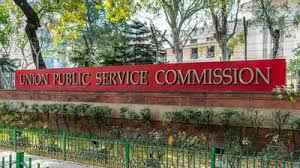
UPSC prelims test your knowledge and temperament simultaneously. Every year out of 5 to 6 lacs aspirants appear in the prelims, and those are the ones who clear the prelim and know how to manage paper 1 and paper 2 well on the exam’s day. Even after a year-long dedicated preparation, you may come across 10% of the questions you have yet to come across. Stay calm as it only dampens your spirits and does not add value, and 70% of the participants face the same problem. As an aspirant, you have worked hard for 1 or 2 years and attained specific knowledge and skills. Thus, finish the balance of 90% of the questions you are confident in making the grade.
Paper 2 of the CSAT tests your analytic and reasoning skills. People tend to take it easy, which often is a blunder. Any candidate wanting to make the grade must practice for 6 – 8 months minimum to attain speed and proficiency. If you do well on paper 2, you can cover your shortfall on paper 1 of CSAT. Keep a no-compromise revision strategy for both paper 1 and paper 2. Keep up your hard work even on D Day as “Nothing Succeeds like Success “.
UPSC Prelims is the most challenging stage in the examination. The competition is cutthroat, and a single question can make or break your attempt. Do your best Stay calm, and you’ll do well.
# Tips No 2
Handling the Essay and General Study papers on UPSC Main
The civil services UPSC mains exam comprises nine theory papers, and the candidate’s achievement in seven of those papers is considered for the final merit list. English and Indian Language (the remaining two papers) are qualifying (candidates must score 25% or above to be eligible for selection). Details of the theory papers are presented below (Source Byjus )
UPSC (Civil Services) Mains Exams Details
| Paper | Subject | Duration | Total marks |
| Paper A | Compulsory Indian language | 3 hours | 300 (Qualifying) |
| Paper B | English | 3 hours | 300 (Qualifying) |
| Paper I | Essay | 3 hours | 250 |
| Paper II | General Studies I – Indian Heritage & Culture, History & Geography of the World & Society | 3 hours | 250 |
| Paper III | General Studies II – Governance, Constitution, Welfare Initiatives, Social Justice & International Relations | 3 hours | 250 |
| Paper IV | General Studies III – Technology, Economic Development, Agriculture, Biodiversity, Security & Disaster Management | 3 hours | 250 |
| Paper V | General Studies IV – Ethics, Integrity & Aptitude | 3 hours | 250 |
| Paper VI | Optional Subject – Paper I | 3 hours | 250 |
| Paper VII | Optional Subject – Paper II | 3 hours | 250 |
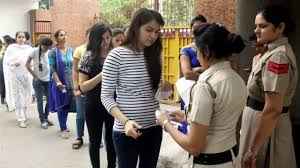
Both essay and General studies papers play a significant role in the qualifying process. While an essay paper has a clear distinction from a general study paper, your available general study scores are based purely on content. But in an essay paper, an examiner focuses on the language, coherence and the way you organize your content structure; so, as an aspiring candidate, you should have adequate knowledge to arrange your ideas properly without making spelling or grammatical errors.
# Tips No 3
Handling the Final Interview / Personality Tests
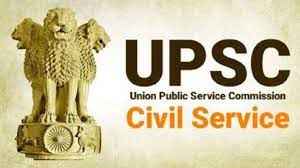
The UPSC Civil Services final Interview/ Personality Test assesses the candidate’s overall personality, communication, and decision-making capabilities. It is the complete personality of an individual that counts when he is faced with a real-time challenge in life.
The interviewer (generally experienced serving or retired bureaucrats) would try to judge if you, as a responsible officer, can think in a practical yet justifiable and unprejudiced manner concerning all concerned. They also evaluate you as a capable administrator in future if allowed to join the Indian Administrative Services by UPSC as per their laid down checklists.
# Tips No 4
Join the Coaching Classes for Expert Guidance
Most established Civil Services Coaching centres have experienced and qualified faculty members who guide the aspirants through the preparation journey. These faculty members are qualified subject matter experts with extensive knowledge of their subject domain.
Once you join any of the reputed centres, you get a detailed understanding of the concepts, case studies, and updated information, helping you to understand the subject in-depth. They also teach you to solve problems and analytics quickly and efficiently.
Coaching centres conduct regular mock tests that simulate the real-time UPSC exam and interviews. Aspirants can evaluate their performance in these tests and get feedback from the faculty members. The coaching centres also assess your preparation level continuously, identify strengths and weaknesses, and guide you for betterment.
When you enrol in a reputed coaching institution, you encounter several bright young aspirants competing for the same race. That always adds to your competitive spirit, sharpens your learning skills, and broadens your vision and attitude.
Becoming an Indian civil services officer is a dream for many aspiring civil servants. However, only a few can participate in the written tests and final interviews.
I hope the blog post has been able to inform you with a few essential information and tips to go ahead and strike success. As an aspirant, you should have a clear goal, followed by a well-planned strategy, and stick to it no matter what. And there is no substitute for your hard work, sincerity and dedication.
Images
All images used in the post are having creative commons license. They are added to provide value to the content and make it reading-friendly. The author does not claim to be the owner of these images.
The Prime Avenue is a website dedicated to providing value-added information to online readers.